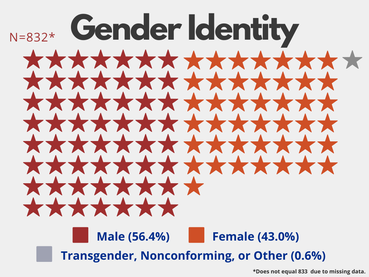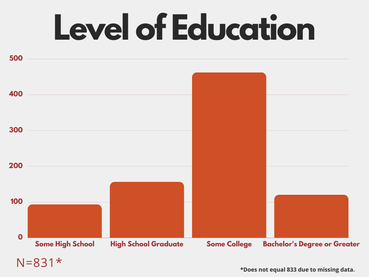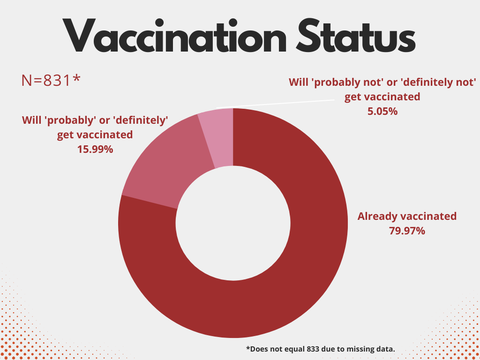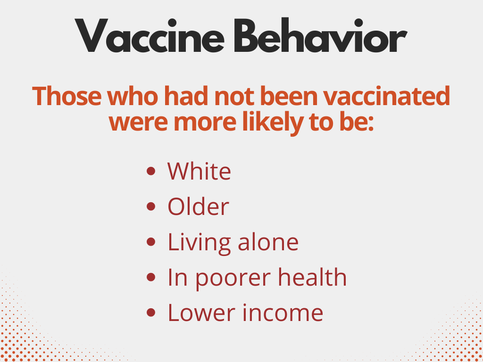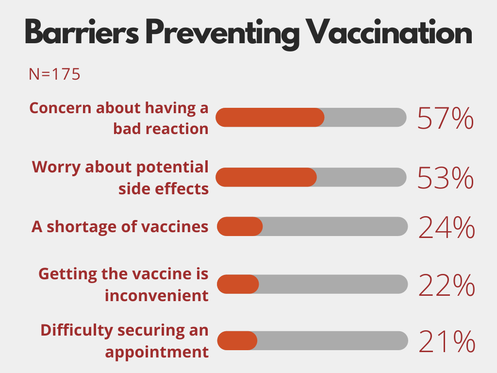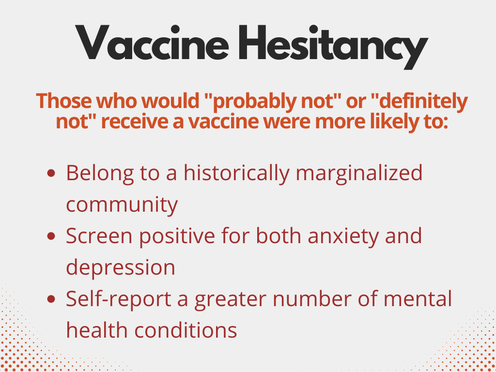Why is this research being done?We want to learn how people with mental health conditions are doing as they deal with the COVID-19 pandemic and its aftermath. Our study has 2 phases (learn more here).
This phase was a national online survey of adults with psychiatric disabilities about their personal experiences, pandemic-related disruptions, emotional wellness, physical health, and what they were doing to stay well during the pandemic. |
What do we hope to learn from the national web survey?
|
Who responded to our survey?
Survey respondents were US residents aged 18 and older, with a psychiatric disability. Survey measures included self-rated physical and mental health, pandemic-related disruptions, coping and resiliency, number of psychiatric diagnoses, number of physical health conditions, access to mental health and medical services, recent mental health symptoms, substance use, and demographic information. Participants were asked if they had been vaccinated against COVID-19, and if not, their intention to become vaccinated. Those who reported being hesitant or disinterested were asked about their reasons and barriers to inoculation. The Qualtrics survey was available from March 26 to July 17, 2021.
How will ongoing findings from this survey be helpful?
We’ll learn how a large group of people with mental health conditions across the country feels about their health, wellness, challenges, and successes during the pandemic. We’ll use these results to recommend services and policies that improve the lives of people in mental health recovery.
The study is a partnership between our Center, the Collaborative Support Programs of New Jersey, the BU Center for Psychiatric Rehabilitation, the Temple University Collaborative on Community Inclusion, and the University of Maryland School of Medicine.
What if I need help during COVID?
|
We understand that this continues to be a difficult time for many people. If you would like someone to talk with, all U.S. states offer Warm Lines operated by trained staff.
Find a warm line. If you are in a crisis, you can contact the National Suicide Prevention Lifeline in your state. Find the number for my state. Our Center’s COVID-19 Wellness Toolkit |





